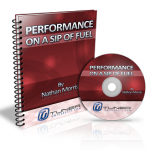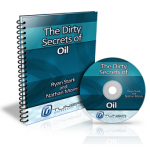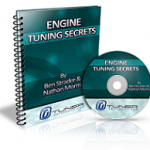I am thinking about starting a newsletter/online magazine/something like that. I get a lot of questions from people every day and I try to answer them in the most complete way I know how. However, I have decided it's a shame to waste all of this great information on individual e-mails and so now I'm going to start picking a few questions every week to write a short write-up on a topic of interest.
This week, I've chosen a common question about brake upgrades. Depending on the feedback I get from this e-mail (let me know if you found it interesting/helpful), I may continue doing this sort of thing on a weekly basis. I may also eventually open it up to new subscribers as right now it's pretty much a closed list.
The goal is to start debunking all these stupid forum myths that are floating around and start giving you guys the REAL dirt on performance car building. I'm sick of the magazine marketing and the half-truths being spouted off by every other 14 year old on the forums. While the forums are good for finding out things like, does a part break often... it's a terrible place to get advice on building your car.
I have always relied on my teachers who are actual racers, actual engine builders, and people who have ACTUALLY done real world testing of various concepts. You will find that what I tell you, and what these experts tell you, will often fly in the face of all the bull you've been fed for years. You can either choose to accept what I say, try it out for yourself and see what I'm on about, or you can write me off as a lunatic and be on your way - either way is fine with me.
However, I hope that you will get massive value from this e-mail, and hopefully future ones as well...
====
Q:
I have a question about the braking system. When I do [my engine swap\ what is the best braking system? I see people changing to the NSX calibers and the 5lug conversion. What do u think about that?
"If u beef up in power don't u need better rotors calibers and brakes to stop that beast?"
=====
A:
Here's the deal on brakes...
Most brake upgrades do nothing to stop you in a shorter distance, they only add feel or heat capacity. Brakes only work well in a certain temperature range. If they get too hot, they fail completely.
The things that effect heat are the speeds you are reaching (so, higher speeds on the track = higher temps), the amount of times you brake (more on the track or a windy mountain road vs the street), and the amount of weight that has to be stopped.
Therefore, lighter cars need smaller brakes, heavier ones need bigger ones. Also, the intended application determine the size of the brakes. A typical econocar has small brakes because it's intended to be driven around town (very little heat build up really).
Sports cars will have big brakes both to sell the car (they look cool), and to match the application - ie, track days, winding mountain roads.
For the most part, calipers and brake lines increase "feel". They make the pedals more stiff and give the driver better feedback than typical OEM parts. Calipers however cannot actually increase braking ability, they can only apply the pad a little more evenly to prevent certain types of wear. Brake lines may fractionally increase the speed at which the brakes reach full lock, but that is about it.
Larger rotors increase heat capacity. In other words, they can absorb more speed before they are so hot that the pad compound and the rotor compound generate n0 friction (or less than optimal).
The same goes for pads, the compound they use determines their heat capability. Race pads work for crap on the street as they are intended for much higher temps. Street pads, work very poorly on the track, because the temps are too high to be optimal. There's really no such thing as a good dual purpose compound, the same as tires....some tires are good for snow while others can't do anything in snow (summer tires). All seasons are just okay at all things.
So, when doing the H22 Swap, you don't HAVE to upgrade the brakes, especially if you're just driving on the street. Track days, yes, street, no....unless you find yourself experiencing brake fade often (ie, your brakes seem to get less effective suddenly due to overuse).
The only way to truly improve stopping distances, and indeed, everything you care about in performance cars - is buy the most expensive, highest rated TIRES you can get. Preferably reasonably close to the stock size but maybe with a 45 sidewall instead of the unusually high ones found on civics/accords/etc.
The tires are the only thing that generate friction against the road to stop the car. If you slam on your brakes and you can lock up the tires or trigger the ABS, the brakes are plenty powerful enough and can't really get any better.
I recommend high end Pirrelli, Yokohama, or Bridgestone tires. The Re-11s are AMAZING and are worth every penny. They'll actually up the G handling of your car, decrease stopping distances and get you off the line faster. Period. For track days, use the Advan A048s, but they're crap for street driving (won't get hot enough to benefit, wear out insanely fast).
I'm tired of people spending thousands on performance parts and rolling crap tires. At the end of the day, tires are the best bang for your buck, period.
I am going to be releasing a book later this month(?) on suspension and braking. It'll contain a lot of uncommon information that cuts through the marketing crap, the forum 'theory', and actually comes from the mouths of people who actually know what they're doing when it comes to suspension and brakes.
For now, as far as brakes go, for most:
- Stainless steel brake lines (optional)
- RBF 600 or similar synthetic brake fluid - higher boiling point than you'll ever need to worry about.
- Hawk HPS Pads (good street pad, lots of bite, decent higher temp performance, good low temp)
- Brembo rotors (genuine blanks or genuine drilled for the street - buy from a authorized dealer).
SOME cars (especially low end models of econocars) do have undersized rotors for spirited driving, in which case, research inexpensive +1" or so rotor upgrades. The calipers are a bonus if you can get them, otherwise, stock calipers are fine.
Spending thousands on Big Brake Kits is generally silly for the average street rod and may just make things worse rather than better.
Until next time...
Cheers,
Nathan Morris
Extremely Limited Time Offer - 3 Days Only
Get a MASTERS DEGREE in Performance Tuning from the BEST in the Field for ONE low package price
For 3 days only, get ALL of our PREMIUM (not available anywhere else) Tuner University Courses featuring some of the greatest minds in motorsports:
- Top 10 Performance Myths Class (MP3 and Edited Transcript) - $29.95 value
- Performance on a Sip of Fuel Class (MP3 and class manual) - $69.95 value
- Header Design Secrets with John Grudynski (MP3 and transcript) - $69.95 value
- Dirty Secrets of Oil with Ryan Stark (MP3 and transcript) - $69.95 value
- Engine Tuning Secrets with Ben Strader of EFI University (MP3 and Transcript) - $69.95 value
Get all of the above courses (many of which not currently available anywhere else) for one single price of just $309.75 $69.95. A HUGE package savings.
You can also buy any of these individually through our resource center, but I don't know why you would as this is basically the whole store for the price of just 1 course. You'll get the MP3 recordings of each class as well as a transcript or companion manual with each course and you'll be able to download them all INSTANTLY.





